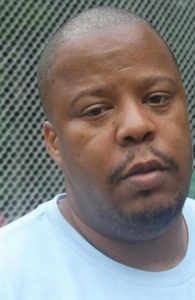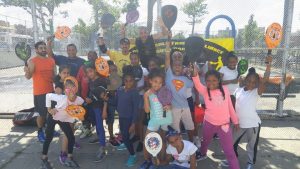Playing Paddleball Without Refs By David Siegel

As most of you are aware, the PFA Rules Committee has just updated the paddleball rules and I urge all of you to read and understand them. During the last couple of years, as I read the dialogue on the PFA Facebook page, the extent of diverging interpretations of the rules has really surprised me. That having been said, the proper application of the rules depends upon the referee and lines-persons. However, think about it, where do we have these officials? In tournaments, of course. 99% or more of all paddleball is played at local parks for fun, exercise and friendly competition, without any refs or lines-persons. We call our own games – and we have arguments! What follows are some guidelines on how to play games without officials for maximum fun and less disputes.
First of all, let’s make an important assumption: Paddleball players are fair and don’t cheat. They are all good sportspersons and understand that everyone occasionally sees a play incorrectly, and that means everyone! They know that accusing players of cheating or insisting “you saw it wrong and I saw it right!” gains nothing except ill-will. In the course of a game or a day, they understand that the incorrect calls will even out. Furthermore, paddleball players all willingly accept a do-over for all disagreements and never let it escalate into an argument. Maybe this is naive, but it is crucial to having a good fair game. If you don’t buy into this, give it a try, but please stop reading this blog and check out my future blog on How to Out-Cheat Cheaters!
Perhaps the biggest source of arguments are line balls. Was it inside or outside or did it hit the line? Well the only way to fairly call lines is for the players with the best view to be the only ones who can make a call. That means the two left side players call their sideline and the right side call theirs. The server’s partner calls the short line and the serve returner’s partner calls the long line. Long lines during rallies should be called only by the deep players. The one that irks me the most is the short line, where it has evolved to the point that the returning team is given equal authority to call shorts, but this is ridiculous. The partner of the server (not the server) has by far the best view of the line. Similarly, the partner of the returner sees the long line best.
Outside callers can be used to help facilitate line calls. When players are not sure, or there is disagreement, and there is an outside observer with a good view of the play, this person’s call should be solicited. However, both teams should agree in advance that they are willing to take this person’s call. Outside callers should understand not to make a call unless asked. If an observer sees a play where a seemingly out ball is missed, bite your tongue unless asked! If outside callers disagree, and both have equal views, call a do-over. And don’t ask an outside caller standing 10 feet behind the long line for a call at the short line!
Call it immediately! If a situation arises during the course of play that would require play stoppage, don’t wait until the play is over. It must be called right away and play stopped. Belated calls breed arguments. Among these are:
- Struck by backswing or forward swing.
- Illegal body contact.
- Illegal movement. A player who took position improperly or crossed the ball is more likely to understand what he or she did wrong if it is pointed out immediately.
- Ball on court. Remember, it’s primarily for safety. If it interferes with play, it should be called immediately by any player, but players who decide to go for the shot and then call it if they miss will have a difficult time justifying the call. By the same token, don’t wait until your opponent is lining up a set-up to call it!
- Obstruction with a player on an adjacent court. Don’t take a chance on hitting an unprepared player. And don’t abuse this by making a call on a ball you had almost no chance to reach, much less return it to the wall.
- “I wasn’t ready”. If you weren’t set for the serve, don’t return the serve anyway, then say you weren’t ready. If you had time to swing at the ball, you had time to call “not ready”.
Watch what you say. Follow the rules prohibiting unnecessary talking during a rally. Only give instructions to your partner such as “I got it”, “let it”, “play”, or make block or out calls. Never say “out” as instructions instead of “leave”. And never say “good”. A call of good can stop the play. Play it out and if there is a question after the play, state that you saw it good. Similarly, don’t say “long” until a served ball bounces. A long call stops the play and if a player returns it on the fly it was an unnecessary stoppage. After the rally, don’t engage in lengthy or unnecessary conversation. This can be interpreted, rightly or wrongly, as psyching your opponent or stamina relief. Play on! And lastly, there is no place for trash talking in paddleball.
Learn what a block is. This is one of the greatest sources of dispute. The new rules clearly specify the conditions for a valid block call, but paddleball is a long way from everyone understanding and adhering to a uniform standard. Also local parks adopt their own block rules, such as through-the-legs is automatic. There is no easy answer, but the best advice is for players to read, understand and discuss the conditions for a valid block call and to err on the side of safety. If a player was caught in a situation where he or she was afraid to hit an opponent with the paddle or nail a player with the ball, the block should be granted.
Outside callers in general. Besides helping in the calling of lines, knowledgeable outside observers should be used where available for calls if there is dispute, such verifying a block call, killer good or not, did ball graze the person or not, was movement illegal? Accepting the outside call should be mutually agreeable in advance and players should not gripe if they disagree with the outside caller. Remember, paddleball players don’t cheat and it will all even out in the long run!
It’s also OK to adopt friendly liberal application of the rules, but don’t change them on the spot. For example, foot faults are rarely called in park play. If you observe a player abusing the foot fault rule to gain an advantage, inform him/her of the transgression as a warning and request the server’s partner or an outside observer to call foot faults afterward. Another example is catching an obviously long or outside ball on the fly. If this is the accepted application of the rule at your park, stay with it, but expect to be called out if there is a “checked swing”. Be aware that it can become a bad habit and come back to bite you in a tournament. Safety. Always keep safety in the forefront. It’s better to lose a point than to hurt someone or get hurt. Abide by the “Code of Conduct”. Everyone will enjoy the game more.
Above all, don’t cheat, or if you do cheat, don’t get caught!




Recent Comments